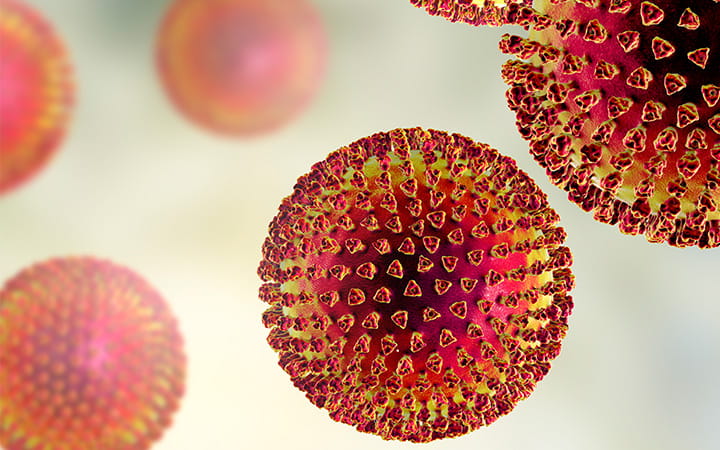RSV: A Common Virus That Can Spell Trouble For Some Kids
January 12, 2020
 University Hospitals Rainbow Babies & Children'sExperts in Children's Health
University Hospitals Rainbow Babies & Children'sExperts in Children's Health

A virus that is common and not a big deal for most adults can create serious health issues for susceptible babies and kids.
The virus, respiratory syncytial virus (RSV), is one of more than 300 viruses that can cause the common cold.
RSV is the most common cause of lower respiratory tract infections in children, says the American Academy of Pediatrics (AAP). Most babies get RSV during their first year, and nearly all children have been infected with the virus by age 2, the AAP says.
But for some children, RSV can spell serious health concerns, says pediatrician Erin Frank, MD, Associate Division Chief, Pediatric Hospital Medicine at Rainbow Babies & Children’s Hospital.
Those most likely to be affected are infants who were born premature or those with lung problems – and even older adults or those with underlying respiratory problems. These children have the potential to develop other serious bacterial infections, such as pneumonia, in addition to the RSV.
The virus is more common during the cold weather months. Symptoms, which usually last up to two weeks, include:
- Fever
- Runny nose
- Cough
Parents should make sure a child stays rested and hydrated with Pedialyte, while medicine such as Tylenol or Motrin can help, too.
RSV Spreads Easily
The RSV virus is highly contagious, Dr. Frank says. The virus spreads when a child comes into contact with fluid from an infected person’s nose or mouth, Dr. Frank says.
This can happen if a child touches a contaminated surface and then touches her eyes, mouth, or nose. Your baby also can get infected if she inhales droplets from an infected person’s sneeze or cough.
Take Precautions
Parents and other caregivers of infants at higher risk for complications from RSV should take extra precautions to avoid the virus and prevent spreading it, the AAP says. That means:
- Always wash your hands with warm water and soap just before holding your baby, and make sure that relatives and caregivers do the same thing
- Clean and disinfect hard surfaces in your home
- Avoid visiting crowded areas, such as a shopping center, with your baby
- Do not smoke around your baby
Related links
University Hospitals Rainbow Care Network’s pediatric practices offer a variety of medical services for children of all ages — from newborns to young adults. Our extensive network provides convenient access to pediatric healthcare services at locations throughout Northeast Ohio. Find a pediatric practice near you.
Tags: Children's Health, Primary Care


